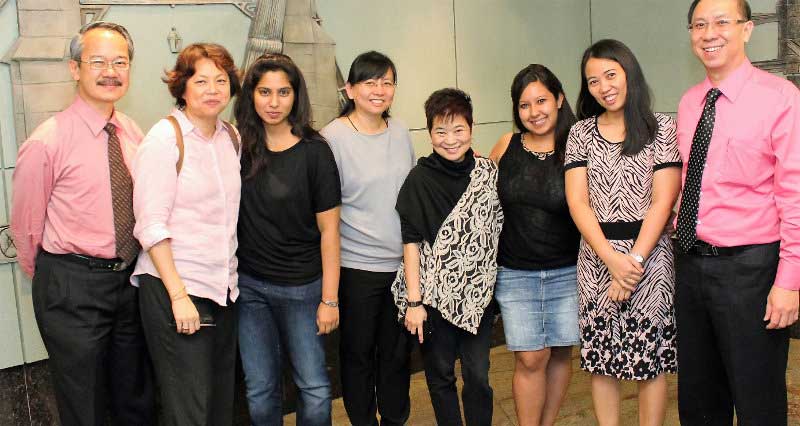F for Family
(The 6 Fs of Leadership at Family Life Society)
Someone once said “We may not have it all together, but together we have it all”
Indeed, a family, be it of blood or of bond, is what provides us with comfort, support and enduring love at our times of need. As we hit the halfway mark for this year, National Family Month serves as a reminder for us to take a moment’s break to reflect on the people who are the reason and the motivation for all that we do. In dedication to family month, our Centre for Non-Profit Leadership team caught up with a leader who has championed the spirit of giving and caring within this fundamental unit of our lives and society, in both personal and professional capacity.
Read on for our interview with Mr John Ooi, Chairman of Family Life Society, erstwhile Head, Academic Quality at Singapore Polytechnic, Consultant at EduCert, and author of books like Learning to Love, as he speaks on the six Fs of Leadership at FLS.
On Motivations
1) Family
It is his belief in the nurturing power of a family environment that led John to take the helm of Family life Society. “As a child, growing up in my family, and then later in the family that I formed with my wife and six children, I have realised how important family life is to personal happiness“. John’s interactions with individuals who have done heroic things, sometimes at great personal cost, collectively inspired his desire to contribute to strengthening families.

On identifying and developing future leaders
2) Foundations
As in any harmonious family, matching values form the foundation for Family Life Society’s future leadership.
“Skills and knowledge can be learnt, but finding people with the right values that matches the organisation’s, and who are able to contribute given their circumstances is more challenging”, says John. “We try to create opportunities through our projects and initiatives for such persons, our future leaders, to learn and to emerge.”
On adopting best practices from other sectors
3) Fundamentals
John feels that whether one works in the non-profit sector or outside of it, for continued effectiveness, leadership has to regularly assess the organisations fundamentals–
“What are the services I am really offering? Who are my beneficiaries, and how do I find them? What systems and processes do I need to put into place to serve my beneficiaries better? Who can I partner with in a win-win relationship to create value for my beneficiaries?”
John believes that long term success is a combination of several factors, and the same applies to businesses – a good product, the right people, properly set up systems and processes, effective marketing business development, and regular review for continual improvement”
On Leadership Principles
4) Faith in humanity
Family Life Society owes its success in part to the faith that its leadership has in its mission and in upholding the dignity of human life. This faith has resulted in a deep sense of commitment in its staff and volunteers alike who have remained with it for years in serving all members of society. The other factor behind its success is the wealth of knowledge and experiences drawn from the 3 decades of its existence and the teachings and history or the church.
5) Focus
The leadership at FLS never loses sight of their objectives and the outcomes they desire. John believes that given one’s limited resources as a non-profit, there must be clarity on goals and definite measures to determine progress. “It also means an openness to working with other like-minded organisations in an integrated national system to minimise unnecessary duplication and wastage of resources.”
On challenges faced in the course of Leading FLS
6) Flexibility
In facing the challenges posed by today’s dynamic social service sector, John’s believes that the way forward lies in adapting and growing.
“While there is a tendency, individually and organisationally, to remain in our comfort zone and doing what we have always been doing, we need to be aware of changes, trends and their implications, otherwise we risk becoming irrelevant. Challenging past assumptions and ways of working is indeed challenging, especially when the way forward is not always clear.
To compensate for the difficulty, there is the reward that comes from knowing that we have made a difference in someone’s life, for the better.”
Since its inception in 1985 Family Life society has made a difference to hundreds of families. With their education programmes like Made for More and services like Marital and Family Therapy, Pregnancy Crisis Counselling, Joyful Parenting and Rachel’s Vineyard, they touch the lives of many individuals and families every year. You can volunteer your time or treasure with FLS here. For more information on their programmes, visit the FLS website.
For more on non-profit leadership development, best practices and programmes visit Our Work page at www.cnpl.org.sg




















